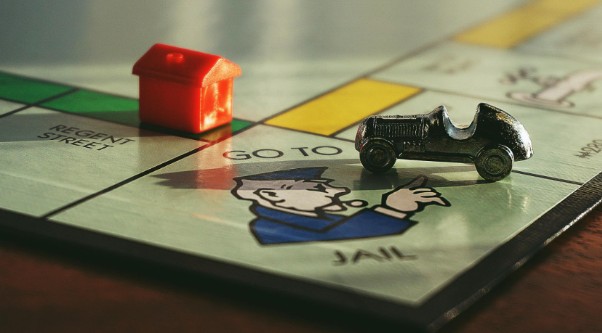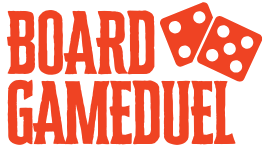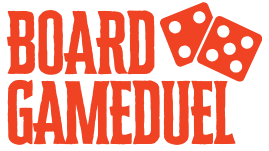There’s a special kind of excitement when you introduce a board game you love to a group of friends. And then there’s the crushing anxiety of realizing they’re zoning out two minutes into your enthusiastic explanation of “area control” mechanics. I’ve been there. More than once.
Over the years, I’ve learned how to teach board games in a way that’s fun, fast, and — most importantly — keeps my friendships intact. Here’s exactly how I do it.
1. I Always Start by Knowing Who I’m Teaching
Before I even pull a game off the shelf, I take a moment to think about who’s at the table. Are they total beginners? Strategy lovers? Casual party gamers who just want to laugh?
Teaching a complex Eurogame to someone who’s only played UNO is a recipe for frustration. But that same game can be a hit with the right group. Matching the game to the players makes everything easier — and more fun.
2. I Set the Scene Before We Even Open the Box

I used to try teaching games in loud, chaotic environments — bars, crowded parties, or even with the TV on in the background. Big mistake.
Now, I always make sure we’re in a distraction-free space. That could be a cozy living room or a quiet corner of a cafe. I put away phones (yes, even mine), make sure everyone has a seat, and set the mood with a little music if the theme fits. It helps everyone focus, including me.
3. I Learn the Game Inside Out Before Teaching It
This might sound obvious, but it’s a rule I learned the hard way. Reading the rulebook as we set up? Disaster. Teaching based on a playthrough I watched two weeks ago? Chaos.
Now, I make sure I’ve played the game myself or done a solo practice run. If that’s not possible, I watch a detailed rules video and read the rulebook. I want to be the calm voice in the storm — not flipping pages in a panic mid-game.
4. I Break Down the Game Theme and What We’re Trying to Achieve
People tune out when you jump straight into “how to take a turn.” So I always begin with the story — what’s the theme? Are we building a kingdom? Escaping a haunted house? Running a sushi restaurant?
Then, I explain what winning looks like. “You’re trying to collect the most points by the end.” “You win if your team completes the mission.” Simple, clear goals make everything else make sense.
5. I Set Up the Game With Everyone Watching
In the past, I used to set up the whole game before people arrived. Now, I actually prefer setting it up with the group.
That way, they see what each component is, and I can explain as we go. “These are your resource tokens. You’ll use them to buy cards like this one.” It turns passive listening into active learning.
6. I Keep the First Rule Explanation Short and Visual

Nobody wants a 20-minute rule dump. So I give just enough info to get us started — the goal, how a turn works, and what a few of the main actions are.
And I show as I explain. I pick up pieces, move them, flip cards. Seeing the mechanics in action makes them click way faster than hearing me ramble.
7. I Give Real Examples, Not Just Rulebook Jargon
One of the best teaching tricks I’ve learned is using concrete, in-game examples.
Instead of saying, “Players may convert three resources into a trade action,” I say, “So if you have three wood, you can trade them for a coin like this — and use that coin to buy a building.” A little context goes a long way.
8. I Play a Dummy Round to Let Everyone Warm Up
Once we’ve got the basics down, we don’t dive into the real game immediately. I lead everyone through a “dummy” or practice round. No points counted, no pressure.
I talk through each step, help players with choices, and let them see the flow. It gives people confidence — and it gives me a chance to reinforce key mechanics.
9. I Highlight the Tricky Bits Without Overloading Players
Every game has that one rule that confuses people mid-game. Now, I try to call those out early — but only the essentials.
For example, I’ll say, “This rule here trips people up — you can only move diagonally, not sideways — but we’ll go over it again when it happens.” That way, they’re aware of it, but I’m not overwhelming them with edge cases.
10. I Focus on Fun — Not on Getting Everything Perfect

The first time I taught a heavy strategy game, I kept stopping to correct people’s turns or rules. It slowed the game down and frustrated everyone.
Now, I let small mistakes slide unless they totally break the game. I remind myself — and the group — that the goal is to have a good time, not win a teaching award.
11. I Step In to Help, But I Don’t Take Over
It’s tempting to “help” someone by suggesting what they should do. But no one likes feeling like they’re being coached through every move.
I offer gentle guidance only when asked, or if someone is totally stuck. Otherwise, I give people space to learn, explore, and make glorious mistakes.
12. I Keep a Backup Plan (and Snacks) Handy
Not every game is a hit, and that’s okay. I always bring a lighter, shorter game as a backup — something easy and silly that doesn’t need a lot of explanation.
Also, snacks. People stay engaged longer when they’re not hungry. It’s a scientific fact. Probably.
13. I End With a Laugh, Not a Rulebook
Whether we finish the game or someone rage-quits halfway through (it’s happened!), I try to keep the vibe light.
We chat about favorite moments, ridiculous moves, and whether we’d play it again. I don’t quiz anyone on the rules. I just make sure everyone walks away smiling — because that’s what keeps them coming back for the next game night.
Final Thoughts
Teaching board games doesn’t have to feel like leading a workshop or giving a seminar. With the right mindset — and a little prep — it can be just as fun as playing the game itself.
And honestly, teaching is one of the best ways to improve your strategy game skills too, since breaking down the rules helps you understand the game on a deeper level.
So next time you’re the one explaining the rules, remember: keep it simple, keep it fun, and for the love of meeples, don’t read the entire rulebook out loud.
FAQs: Teaching and Sharing Board Games Without Losing Your Friends
1. How do I actually teach a board game without confusing everyone?
Start by knowing the game inside out. Then, focus on the big picture: what’s the theme, how do players win, and what’s the main loop of the game? Use visuals, keep it short, and walk players through a practice round. Patience and clarity go a long way — and remember, it’s totally fine if people ask questions or make mistakes.
2. What’s the best way to introduce a board game to new players?
When I introduce a game, I try to hook people with the story first. I say what the game is about (theme), what everyone’s trying to achieve (goal), and why I think they’ll enjoy it. Only after that do I start talking about turns, pieces, or rules.
3. How do you keep a board game fun for everyone?
It’s all about matching the right game to the right group. If people are laughing, engaged, or thinking out loud, you’re doing it right. Avoid getting bogged down in rules. Let people make mistakes. And read the room — if something’s not clicking, be ready to pivot or take a break.
4. What makes a board game enjoyable for new players?
Clarity, momentum, and theme. A good intro, clear goals, and quick engagement help a lot. I try to keep things moving, explain only what’s necessary, and get people making decisions fast. When players feel like they’re part of the game world, the fun follows naturally.
5. What are the core elements that make a board game “good”?
From my experience, these 10 things really make a game stand out:
- A clear, engaging theme
- Simple rules that build into deep strategy
- Balanced mechanics
- Fast and fair setup
- Player interaction (but not chaos)
- Meaningful choices
- Replayability
- Smooth turn flow
- A satisfying win condition
- Just the right amount of luck
You don’t need all of these, but a good game usually nails most of them.
6. How do I promote or share a new board game with others?
Whether it’s your own game or just a new one you love, passion is your best tool. Share why you’re excited about it, show off a short demo or play session, and highlight what makes it unique. Social media, board game communities, and friendly game nights are great places to spread the word.
7. How can I make a board game more educational — without making it boring?
Embed learning into the gameplay itself. Whether it’s teaching math through resources, history through settings, or problem-solving through mechanics, the key is making learning part of the fun. Nobody wants a quiz — they want a challenge that just happens to be educational.
8. What if my friends don’t like the game I brought?
It happens. Not every game will land with every group. That’s why I always have a backup game — something light, quick, and easy to reset the mood. Worst case, we just chat and snack. It’s game night, not game exam.









